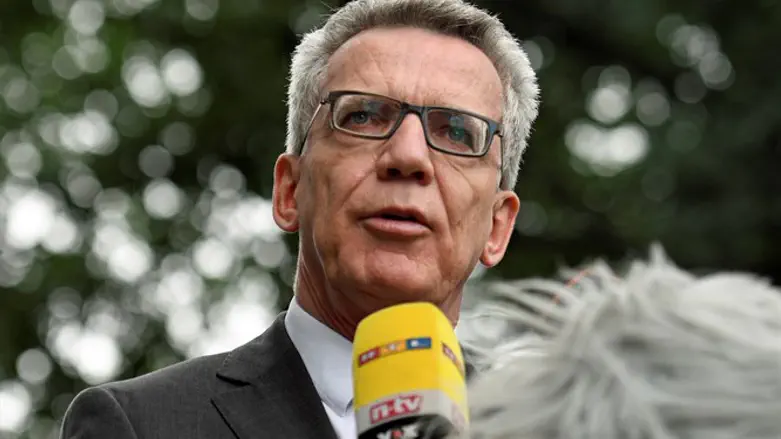
Germany on Thursday unveiled tough new anti-terror measures after two recent attacks claimed by the Islamic State (ISIS) group.
Deportations of convicted criminal migrants will be sped up while police resources are to be greatly boosted under the security package drawn up by Interior Minister Thomas de Maiziere.
"Germans who participate in fighting abroad for a terror militia and who have another citizenship should lose their German nationality," de Maiziere said, according to the AFP news agency.
Around 820 people have left Germany to fight alongside jihadist groups in Syria and Iraq, according to estimates by German secret services.
With about one in three fighters having since returned to Germany, fears are running high of the threat they may pose on European soil.
The security package must still be approved by the country's coalition as well as in the German parliament. The issue of taking away German citizenship could be disputed, with Green lawmaker Volker Beck swiftly condemning it as "desperate activism", according to AFP.
De Maiziere himself also acknowledged that it "would be a difficult point" with the government's junior coalition partner, the Social Democrats (SPD).
But making his case, he pointed to German legislation which already allows for citizens with dual nationalities and who fight for a foreign army to be stripped of their German citizenship.
"So if someone fights for a terror militia that is similar to an armed force, and which calls itself an army, I don't see why this should not be considered," he argued.
Germany's southern state of Bavaria was targeted by two separate terrorist attacks claimed by ISIS.
In the first attack, a 17-year-old Afghani with an ax attacked passengers on a train in Wurzburg before being shot dead by security forces.
In the second incident, an attacker set off a bomb in a restaurant in Ansbach, killing himself and wounding 12 others.
The link to migrants has put intense pressure on Chancellor Angela Merkel over her liberal asylum policies that saw 1.1 million refugees arrive in Germany last year.
De Maiziere said the latest anti-terror measures should be adopted before the autumn 2017 elections.
On the policing front, the minister said he would seek a "four-digit increase" in police jobs, on top of a staffing increase agreed by the government for 4,600 new posts over the next year.
Spending on security would also be raised by 2.0 billion euros ($2.2 billion) by 2020.
A special division will be set up within federal police forces that would coordinate security efforts in terror situations, he added, according to AFP.
De Maiziere however rejected a call from conservative Christian Democrat state interior ministers for a burqa ban, saying, "We can't ban everything that we reject, and I reject the wearing of the burqa."
Germany, which like many other countries has been affected by radicalization, in 2014 announced a ban on ISIS in an attempt to prevent the group from recruiting young jihadists in the country.
